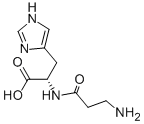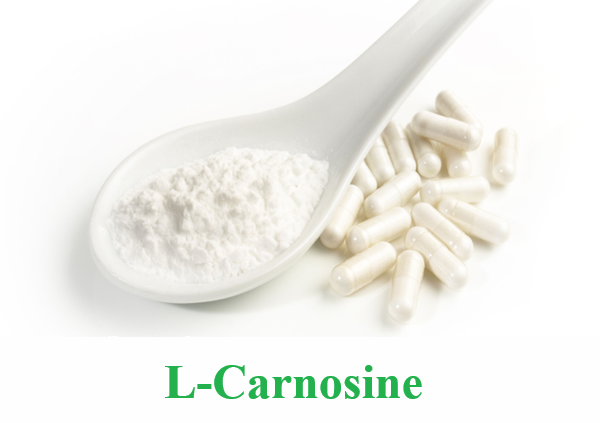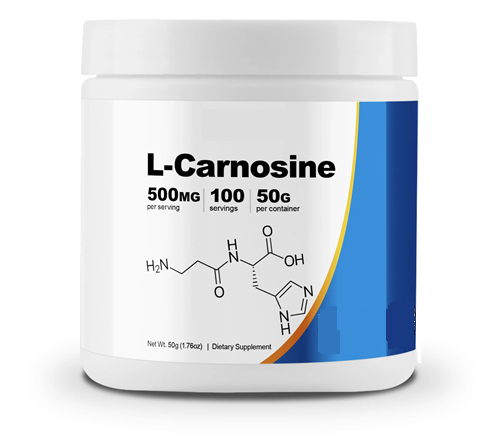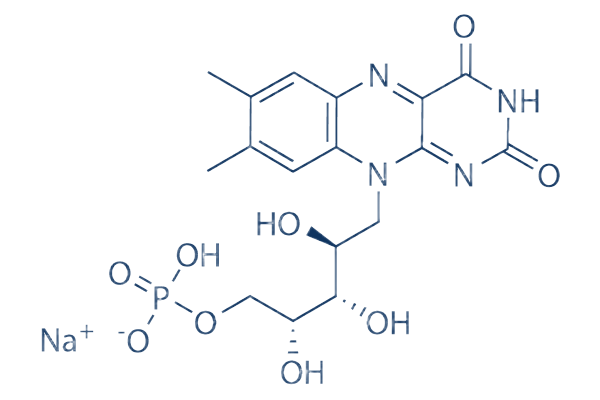What is L-carnosine used for?
Description
Carnosine, or L-carnosine, is a naturally occurring substance in the body. It is most commonly known as a powerful antioxidant. Scientifically speaking, carnosine is a dipeptide or a compound of two linked amino acids: beta-alanine and histidine. It was initially discovered in skeletal muscle where it is present in more significant amounts than in other tissues, but it is also found in high concentrations in the brain, heart, and gastrointestinal tissues of humans. It is an integral part of different tissues in all vertebrates, while plants do not contain it at all.
Biological function
Although its physiological role has not yet been completely understood, carnosine is a non-enzymatic free-radical scavenger and a natural antioxidant with anti-inflammatory and neuroprotective properties. Furthermore, its numerous beneficial effects have now been well established including pH-buffering activity, heavy metal chelating activity, and antiglycating activity. Carnosine reduces lipid peroxidation and inhibits oxidative modification of proteins exposed to hydroxyl radicals. Furthermore, it improves antioxidant capacity.
Applications in cancer treatment
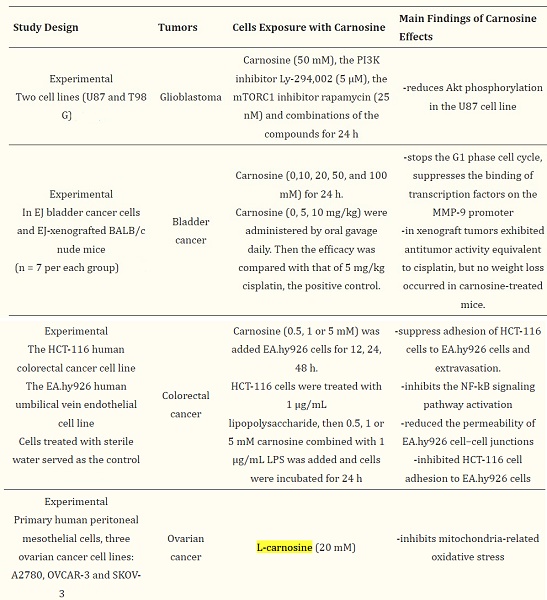
The positive effects of carnosine in treating tumors are increasingly being observed[1]. It is likely that L-carnosine inhibits splenic sympathetic nerve activity and proliferation in rats as well as the multiplication and growth of cancer cells by increasing the natural killer cells (NK cells) responsible for the natural cytotoxicity of the organism. Carnosine combined with radiotherapy reduced the side effects of radiation, skin injury, and the organism's intoxication, increased immunity, decreased the level of reactive oxygen species and increased the activity of mitochondrial superoxide dismutase in tumor cells. Since one of the biggest challenges today is the treatment of malignant tumors, the fact that carnosine may have a role in this challenge is supported by the studies listed in Table. It is known that cancer cells have a high dependence on glycolysis for their production of adenosine triphosphate (ATP). In contrast, carnosine can inhibit glycolysis and thus achieve an antitumor effect.
References
[1] Ivana Jukić. “Carnosine, Small but Mighty-Prospect of Use as Functional Ingredient for Functional Food Formulation.” Antioxidants 10 7 (2021).
You may like
Related articles And Qustion
See also
Lastest Price from L-Carnosine manufacturers
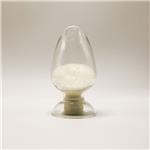
US $500.00-500.00/kg2025-10-10
- CAS:
- 305-84-0
- Min. Order:
- 1kg
- Purity:
- ≥99.00%
- Supply Ability:
- 1000000

US $0.00/kg2025-09-22
- CAS:
- 305-84-0
- Min. Order:
- 1kg
- Purity:
- 99%
- Supply Ability:
- 1000kg
